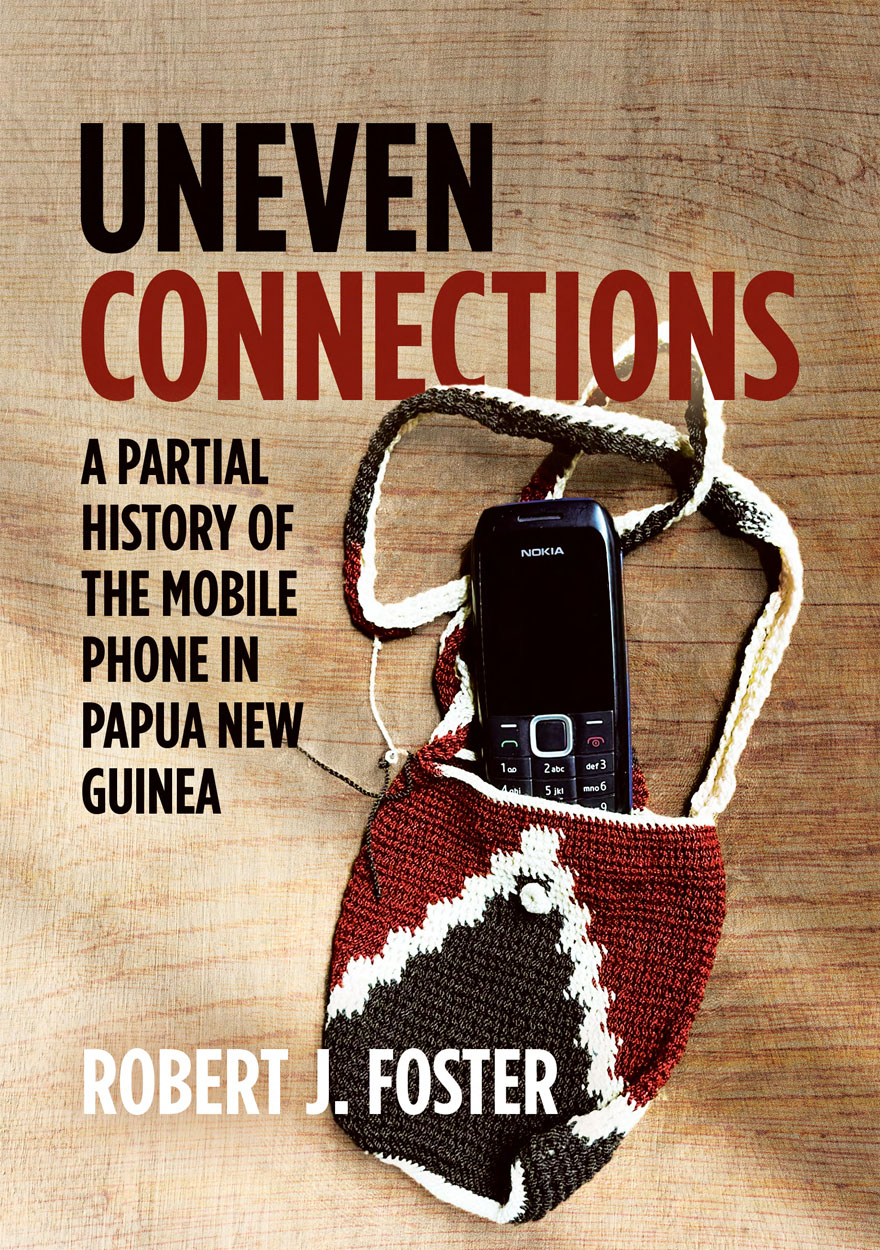A Partial History of the Mobile Phone in Papua New Guinea
Publication date: March 2024
In the first years of the 21st century, economic liberalisation began to transform telecommunications services throughout the Pacific Islands. Government regulators, corporate executives and everyday consumers hopefully imagined that opening mobile phone markets to competition would result in greater access, lower costs and accelerated development.
Uneven Connections examines the ways in which liberalisation took hold in Papua New Guinea (PNG) when a unit of the Caribbean-based mobile network operator Digicel Group Ltd. seized the opportunity to compete with the state-sponsored incumbent. The book highlights how mobile phones entered the lives of urban and rural Papua New Guineans after Digicel’s arrival in 2007. In so doing, it describes a moral economy in which companies, consumers and state agents continually negotiate who owes what to whom. In what ways have these various actors invented and negotiated new forms of both freedom and constraint?
Uneven Connections advances understanding of how a so-called digital revolution in PNG unfolded, resulting in outcomes that often confounded the expectations of policy makers and ordinary citizens alike. It assesses the extent to which some of the promises of this revolution have been redeemed and identifies the challenges faced by companies, consumers and state agents in establishing and experiencing novel forms of uneven connectivity. The book provides a short and selective history of mobile phones in PNG, ending with the sale of Digicel’s Pacific operations to the Australian company Telstra in 2022.





